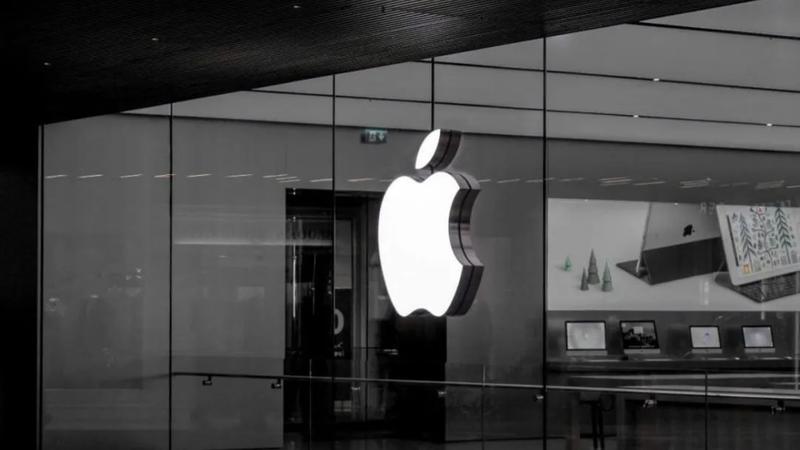Published 17:38 IST, December 19th 2024
EU Wants Apple to Open iOS to Third-Party Developers: What This Could Mean for Users
EU has shared a document stating changes it wants Apple to make to iOS. Apple has responded to the document saying that the listed changes pose a privacy risk.

Apple has already been forced to change the way it works in Europe owing to Europe's Digital Markets Act or the DMA. The company now allows users to change the default apps on iPhones. In Europe, it also enables users to download third-party app stores -- something that wasn't possible until now. But now, the European Union wants Apple to go a step further and open up the iOS ecosystem to third-party developers and let them access the deepest parts of OS and not just the APIs that let them make apps for iPhones.
The European Union has published a paper listing all the changes that it wants Apple to make to its iOS ecosystem in a bid to 'to ensure effective
interoperability'.
What changes is EU asking Apple to make to its iOS ecosystem?
The 25-page-long document shared by the European Union asks Apple to make changes to features across iOS's ecosystem ranging from its notification to peer-to-peer Wi-Fi to AirDrop and AirPlay. Here are the top changes that the EU is asking Apple to make:
-- EU is asking Apple to open up iOS notifications feature to the third-party developers giving them same accesses as the company has. "Apple shall implement an interoperability solution that provides third parties with
access to the same iOS notifications feature described in the preceding paragraph as available to Apple, in a way that is equally effective as the solution available to Apple," EU wrote in its paper.
-- EU also wants Apple to provide 'effective interoperability' including all functionalities of the iOS notifications feature that are available to Apple devices such as Apple Watch, and Apple Vision Pro to third party physical devices.
-- EU also wants Apple to provide third-party developers all the metadata pertaining to iOS notifications.
-- In addition to this, EU wants Apple to open up its background execution feature to third party developers. For the unversed, the background execution feature enables Apple to ensure that an iPhone can continuously scan for Bluetooth Low Energy devices, establish and maintain a connection with connected physical devices and send and receive data via the internet. The list of demands shared by EU require Apple to allow third party developers to provide interoperability with all functionalities of the background execution feature which are available to the company's own connected physical devices.
-- EU also wants Apple to provide the same access to its audio switching features as it uses in its own devices. This feature allows end users switch between two different wireless audio devices, such as AirPods. "This means that third parties must have access to the same data and information controlled or accessed by iOS that Apple uses to implement automatic audio switching functionality on Apple devices," EU added in its document.
-- EU also wants Apple to provide third parties with access to the same high-bandwidth P2P Wi-Fi feature as it has access to.
-- EU also wants Apple to open up AirDrop and AirPlay to third-party developers. "Apple shall make available the possibility for a third-party connected physical device to become an AirPlay receiver, i.e., allowing the iOS device to cast content to a receiving third-party connected physical device, to all interested third parties independently of the product category, for video, audio, and screen mirroring," EU added.
What is Apple saying about EU's requests and what impact these changes could have on the users?
Apple has published its own 11-page-long document in response to the paper shared by EU detailing how giving third-party developers access to iOS's detailed components could have an impact on the privacy of users' personal data. The company, in particular, has called out Meta for being the company that has made the highest number of interoperability requests. "Meta has made 15 requests (and counting) for potentially far-reaching access to Apple’s technology stack that, if granted as sought, would reduce the protections around personal data that our users have come to expect from their devices," Apple wrote in its response.
"If Apple were to have to grant all of these requests, Facebook, Instagram, and WhatsApp could enable Meta to read on a user’s device all of their messages and emails, see every phone call they make or receive, track every app that they use, scan all of their photos, look at their files and calendar events, log all of their passwords, and more. This is data that Apple itself has chosen not to access in order to provide the strongest possible protection to users," the company added.
Apple is known for deploying some of the most stringent privacy features -- a move that has been criticised for affecting companies' bottom lines, including by giants such as Meta. Opening up iOS to third-party developers could therefore give companies unwarranted access to user data, which could also be leveraged for targeted advertising.
That said, EU has said that it will seek feedback from third parties and Apple and investigate further before finalising the measures that could make or break the iOS ecosystem.
Updated 17:38 IST, December 19th 2024



